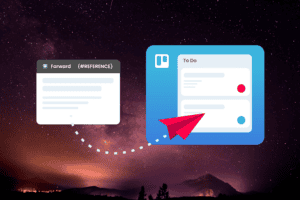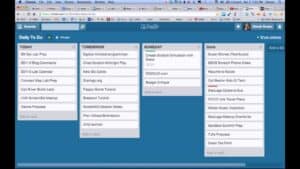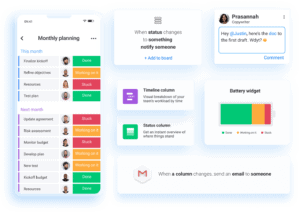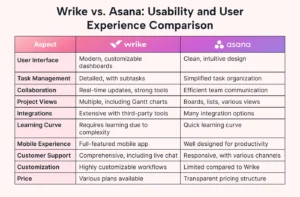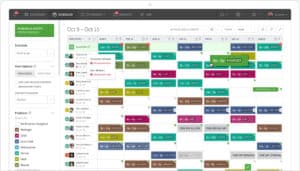Mastering Project Management for Effective Remote Teams
Project management is essential for the smooth operation of any team, but when managing a remote workforce, the need for clear structure and efficient workflows becomes even more critical. In this guide, we will explore the fundamentals of project management, strategies for leading remote teams, and tools to simplify and streamline your processes.
The Importance of Project Management in Remote Teams
Remote work is now a reality for many businesses, and with it comes the challenge of managing projects where team members are spread across different locations, time zones, and sometimes even cultures. Project management provides the structure necessary to keep remote teams aligned, organized, and productive.
Key Reasons Why Project Management Matters for Remote Teams:
- Clear Communication: In a remote setup, communication can easily become fragmented. A well-structured project management system ensures that everyone is on the same page.
- Task Accountability: Project management helps assign tasks, track progress, and hold team members accountable, even if they are not physically in the same office.
- Resource Optimization: It helps managers allocate resources effectively, ensuring that teams remain efficient and projects stay on budget.
- Meeting Deadlines: Remote work can introduce flexibility, but it also increases the risk of missed deadlines. Project management tools allow managers to set clear deadlines and monitor task completion.
- Transparency: Everyone on the team has visibility into the status of a project, preventing confusion or miscommunication about what’s expected and when it’s due.
Best Practices for Managing Remote Projects
Managing projects for a remote team differs from in-person management in several ways. To ensure success, it’s important to adopt a few key strategies.
1. Set Clear Objectives and Milestones
Before starting any project, it’s essential to define the goals and set measurable milestones. This clarity keeps the team focused and motivated, even when working from different locations.
- Tip: Break projects down into smaller, manageable tasks, and assign each task to the appropriate team member. Use tools like Gantt charts or Kanban boards to visualize the workflow.
2. Use the Right Project Management Tools
The right software can make or break remote project management. Look for tools that facilitate communication, track progress, and provide transparency for all team members.
- Recommended Tools:
- Asana: A popular project management tool that allows teams to assign tasks, track progress, and collaborate in real time.
- Monday.com: Known for its intuitive design, Monday.com is a versatile platform that offers task management, progress tracking, and team collaboration features.
- Trello: Ideal for smaller teams, Trello uses a card-based system that’s easy to use and effective for organizing tasks.
3. Foster Open Communication
Without the ability to walk over to someone’s desk, communication can become disjointed. Regular check-ins and updates help maintain momentum and ensure that everyone is aligned.
- Tip: Schedule regular team meetings via video conferencing tools like Zoom or Microsoft Teams, and encourage the use of project management tools for daily task updates.
4. Time Management and Deadlines
One of the biggest challenges in remote work is time management. It’s easy for deadlines to slip without oversight, especially when team members are working in different time zones.
- Tip: Use time-tracking tools like Harvest or Toggl to monitor how much time is spent on specific tasks. This helps both managers and employees stay on track.
5. Encourage Team Collaboration
A sense of isolation can be a challenge for remote workers. Fostering collaboration through shared tools and platforms can help.
- Tip: Utilize communication platforms like Slack for quick updates and informal chats, or tools like Google Workspace for document collaboration.
How to Overcome Common Remote Project Management Challenges
Managing Time Zones
One of the biggest challenges of remote work is managing teams across different time zones. This requires careful planning to ensure meetings and deadlines are manageable for all team members.
- Solution: Use tools like World Time Buddy to help plan meetings at times that work for everyone. Additionally, stagger work shifts so that critical handovers between time zones are smooth.
Maintaining Accountability
When you don’t see your team in person, it can be harder to ensure everyone is on track with their tasks.
- Solution: Use project management tools to assign tasks with clear deadlines. Have regular check-ins and use progress tracking features to keep everyone accountable.
Building Team Culture
Remote teams often struggle to maintain a cohesive culture. Without a physical office, the bonds between team members can weaken.
- Solution: Regular team-building activities, virtual social events, and fostering open communication can help maintain a strong sense of community. Tools like Donut can help facilitate casual connections between team members.
Conclusion: Optimize Your Remote Team with Project Management
Effective project management is the key to keeping remote teams organized, efficient, and productive. By setting clear goals, using the right tools, and fostering open communication, managers can overcome the challenges of remote work and deliver successful projects on time and on budget.
FAQs
What is project management in the context of remote teams?
Project management for remote teams involves organizing and tracking tasks, managing resources, and ensuring communication flows efficiently among team members who are not in the same location.
What are the best tools for remote project management?
Some of the best tools for remote project management include Asana, Trello, Monday.com, and Slack for communication.
How do you keep remote teams on track with deadlines?
Use project management tools to assign tasks with deadlines and utilize time tracking tools like Harvest or Toggl to monitor task completion.
How do you maintain communication in remote teams?
Regular check-ins, using platforms like Zoom for meetings, and tools like Slack for day-to-day communication help maintain alignment.
What’s the most important aspect of remote project management?
The most important aspect is clear communication. Without it, remote teams can quickly become disorganized and lose track of key milestones.
Top Tools to Simplify and Scale Your Business
Asana
Asana is a leading project management tool offering real-time task tracking, team collaboration, and detailed reporting to keep remote teams aligned.
Monday.com
Monday.com is a visual project management platform designed for task allocation, progress tracking, and team collaboration, making it perfect for remote teams.
Trello
Trello offers an easy-to-use card-based system that helps remote teams manage tasks and projects seamlessly with a focus on simplicity and collaboration.
Slack
Slack is an essential communication tool for remote teams, offering instant messaging, channels for team collaboration, and integrations with various project management tools.
Harvest
Harvest is a time-tracking tool that helps remote teams manage their hours effectively, ensuring deadlines are met and resources are used efficiently.
Keywords:
remote project management, project management tools, remote team collaboration, team task tracking, Asana, Monday.com, project management for remote teams



